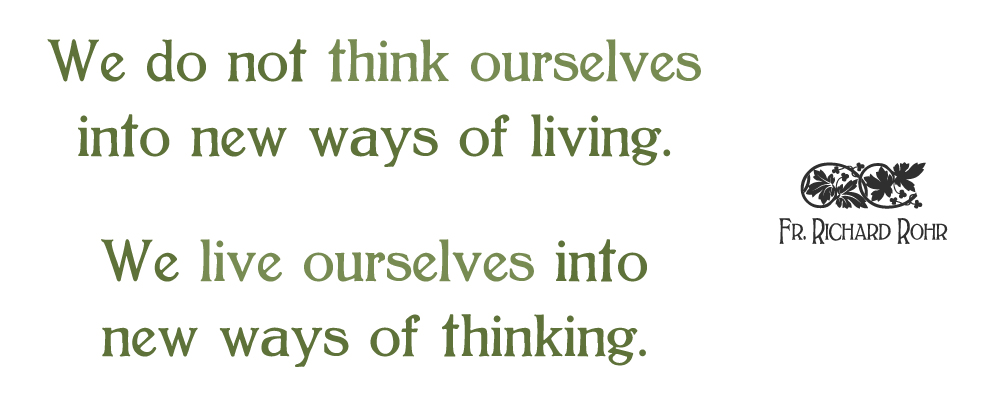Having finished Flannery O’Connor’s Prayer Journal, I’ve moved on to studying contemplative prayer during this season of Lent. Not once have I experienced centering prayer before, so even the concept of it is new to me. I’ve already picked up Thomas Merton’s Contemplative Prayer but I chose instead to first read Everything Belongs by Richard Rohr. I’ve already underlined nearly half of the first chapter. Forever zealous.
In all the ways I’ve wrestled with my faith, I’ve yet to wrestle with the basic truth of God’s existence. I don’t know if that’s because the core of my faith is stable or if it means I’m extremely stubborn, but knowing God is real and present and fully invested in me has been a mainstay since my youth. How He oversees the universe and all its goings-on, I have no clue.
Richard Rohr is a Franciscan friar in the Roman Catholic Church and an impassioned advocate and teacher of contemplative prayer. He begins Everything Belongs by explaining the difference between our centers and our circumferences. At our center is our core, the part of ourselves that innately desires closeness and connection to God. Our circumference is the outward projection of ourselves, our voice, our action, and all the things that claim our identity. Our goal in life should be to anchor God at our core so that our circumference becomes a reflection of Him. To help anchor our core, we can use centering prayer.
I know. It’s heavy. It is so much easier to not think about this stuff. Rohr knows it too. He says, “For some reason, it is easier to attend church services than quite simply to reverence the real — the ‘practice of the presence of God.'” Isn’t that the truth!
According to Rohr, our emotional and spiritual maturity influences our circumference, or rather, our outward behavior. He says, “Those who rush to artificially manufacture their own identity often end up with hardened and overly defended edges. They are easily offended and are always ready to create a new identity when the current one lets them down… It is much easier to belong to a group than it is to know you belong to God.” I say again, isn’t that the truth!
Even though I’m tempted to put young people (those with less life experience) in the category of seeking out groups and forming their identities by cultural standards, I know many adults – older than me even – who have yet to put any emphasis on their spiritual core. Their minds and actions are still swayed by societal norm, which isn’t surprising since societies norms are fueled by peer pressure. Not that I sit here pious and justified in my own thinking. I am entirely a student in this realm. Yet I’ve seen and heard enough questionable ideas from peers and elders to wonder: what would happen if we all just shut up and listened for the voice of God?
So that’s where I am this week – mulling over my core and evaluating my circumference and wondering if the two will ever align.

1 Comment
Comments are closed.